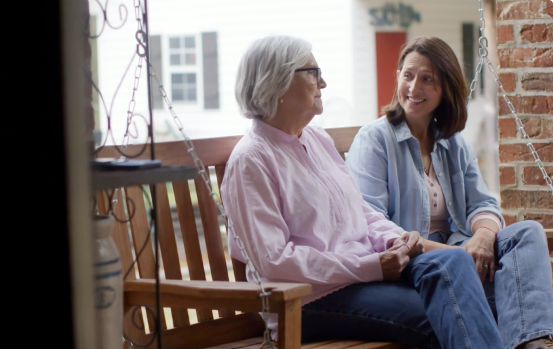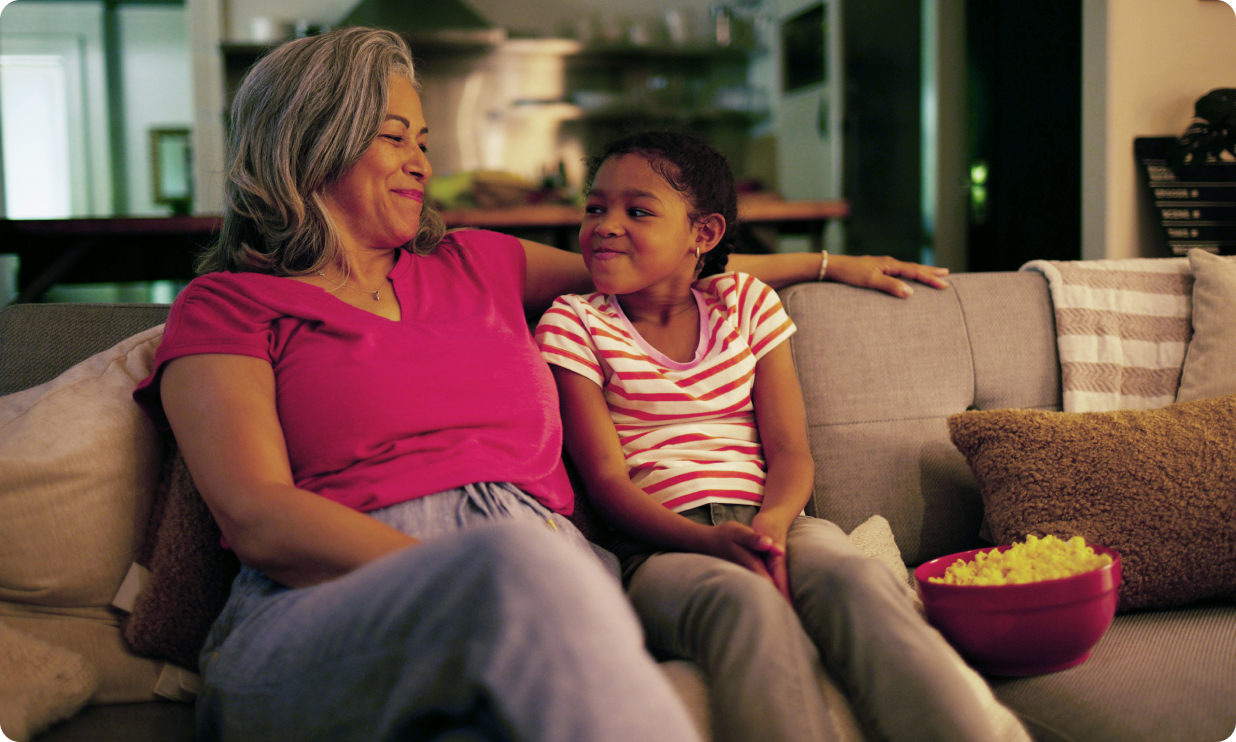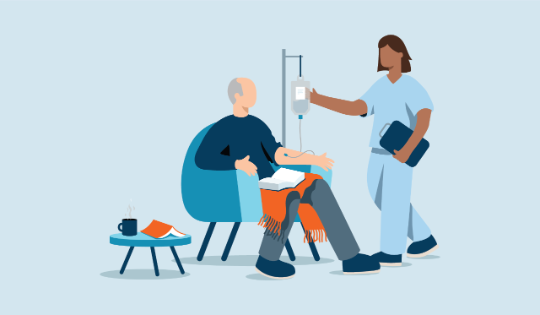

Clinical trial results
for advanced
kidney cancer
For certain adults with previously untreated kidney cancer that has spread (advanced renal cell carcinoma)


Clinical trial results
for advanced
kidney cancer
For certain adults with previously untreated kidney cancer that has spread (advanced renal cell carcinoma)
Actor portrayals.
In a clinical trial of 847 people with previously untreated advanced kidney cancer with one or more risk factors, 425 people were given OPDIVO + YERVOY and 422 people were given SUTENT® (sunitinib malate), a standard treatment.
In the clinical trial, people given OPDIVO + YERVOY had a 37% lower risk of dying than those given SUTENT, and more than half of the people given OPDIVO + YERVOY were alive at 26 months compared to half the people given SUTENT.
OPDIVO + YERVOY |
SUTENT |
Tumors disappeared completely (complete response)
Tumors shrank (partial response)
Tumors shrank or disappeared completely (overall response)
People given OPDIVO + YERVOY lived without their tumors worsening for 12 months compared to 8 months for people given SUTENT. There was no meaningful difference between the two treatments.
Words to know
Overall response rate is the percentage of patients who responded to treatment. These patients saw their tumors either shrink or disappear completely.
Partial response is when a tumor reacts to treatment and shrinks.
Complete response is when a tumor reacts to treatment and disappears completely. This is the disappearance of any measurable tumors in response to treatment. This does not mean the cancer has been cured.
OPDIVO + YERVOY will not work for everyone. Individual results may vary.
After Carol was diagnosed, she spoke with her doctor about immunotherapy options. Together, they decided to start treatment with OPDIVO + YERVOY for her newly diagnosed advanced kidney cancer, or renal cell carcinoma (RCC).

Talk to your doctor about a potential first treatment option for advanced kidney cancer.

See your recommended treatment plan and what to expect from an infusion
For certain adults with advanced kidney cancer (renal cell carcinoma)
OPDIVO® (nivolumab) is a prescription medicine used in combination with YERVOY® (ipilimumab) to treat adults with kidney cancer (renal cell carcinoma) in certain people when your cancer has spread (advanced renal cell carcinoma) and you have not already had treatment for your advanced RCC.
OPDIVO (10 mg/mL) and YERVOY (5 mg/mL) are injections for intravenous (IV) use.
It is not known if OPDIVO is safe and effective in children younger than 12 years of age with melanoma or MSI-H or dMMR metastatic colorectal cancer.
It is not known if OPDIVO is safe and effective in children for the treatment of any other cancers.




